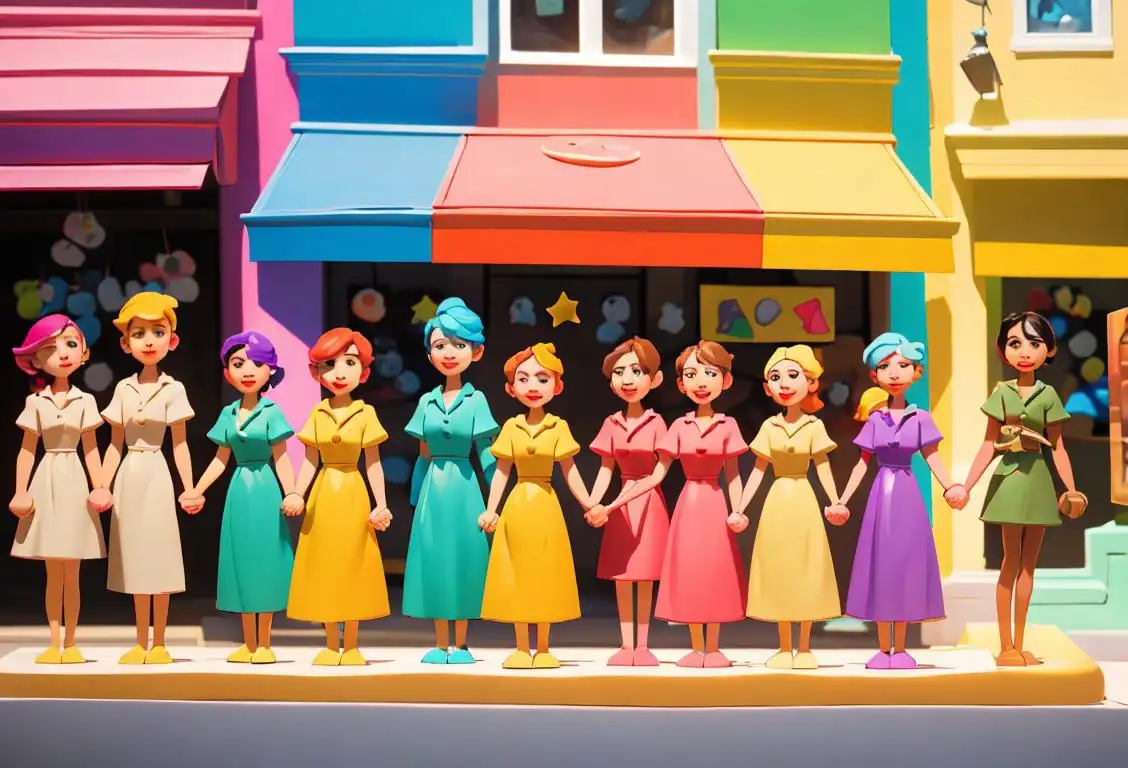National Consumer Rights Day

Happy National Consumer Rights Day! Today is all about protecting our rights as consumers and making sure we're treated fairly. It's like having a superhero cape that says 'I demand my money's worth!' So grab a magnifying glass and let's dive into the fascinating world of consumer rights.
When is Consumer Rights Day?
It's national consumer rights day on the 24th December.
The Birth of National Consumer Rights Day
Every superhero has an origin story, and National Consumer Rights Day is no exception. The idea was born out of the need to raise awareness about consumer rights and empower people to stand up for themselves. Back in the old days of the internet, when dial-up connections ruled the world, a group of passionate individuals decided to create a day dedicated solely to consumer protection. And thus, National Consumer Rights Day was born!
This special day has gained popularity over the years, with millions of people joining the movement to fight for fairness in the marketplace. It's a day when consumers and activists come together to share information, raise awareness, and celebrate the power we have as consumers.
Protecting Your Rights in the Digital Age
The internet has revolutionized the way we shop, but it has also brought new challenges to consumer rights. From online scams to data breaches, the digital landscape can be a treacherous place for unsuspecting buyers. That's why it's more important than ever to stay informed and protect ourselves.
On National Consumer Rights Day, take some time to educate yourself about your rights as an online shopper. Look out for secure payment options, read reviews and ratings before making a purchase, and be cautious of phishing emails that try to steal your personal information.
Remember, you have the power to demand fair treatment. If you encounter any issues with a product or service, don't hesitate to speak up. Contact the company, file a complaint with consumer protection agencies, or seek legal advice if necessary. Your voice matters, and together, we can create a safer and fairer marketplace.
Did You Know?
Did you know that the concept of consumer rights can be traced back to ancient times? In ancient Rome, there were laws in place to protect buyers from fraudulent sellers. It just goes to show that the desire for fair treatment has been ingrained in us since the dawn of civilization!
History behind the term 'Consumer Rights'
1890
The birth of consumer rights
Consumer rights started to gain recognition in 1890 with the passing of the Sherman Antitrust Act in the United States. This landmark legislation aimed to regulate and promote fair competition in the marketplace by prohibiting monopolistic practices, such as price-fixing and collusion among businesses. Although not explicitly focused on consumer rights at the time, this act laid the foundation for future policies to protect consumers from unfair business practices.
1962
Unsafe products spur consumer activism
The year 1962 marked a turning point in consumer rights with the publication of the book 'Silent Spring' by Rachel Carson. This exposé on the harmful effects of pesticides on the environment and human health ignited a strong public outcry. It led to increased awareness of the need for consumer protection and paved the way for subsequent regulations like the Clean Air Act and the creation of agencies like the Environmental Protection Agency (EPA). The book played a crucial role in raising consumers' concerns and catalyzing a movement for safer products.
1967
Consumer Bill of Rights
In 1967, President John F. Kennedy addressed the issue of consumer protection in a special message to the U.S. Congress. This message highlighted four basic rights that consumers should be entitled to: the right to safety, the right to be informed, the right to choose, and the right to be heard. This declaration became known as the 'Consumer Bill of Rights' and served as a rallying cry for consumer advocates across the nation, influencing subsequent legislation and policies to safeguard consumer interests.
1972
Establishment of consumer protection agencies
To reinforce the principles enshrined in the Consumer Bill of Rights, the U.S. Congress established the Consumer Product Safety Commission (CPSC) in 1972. This independent regulatory agency aimed to protect consumers from unreasonable risks of injuries associated with consumer products by developing safety standards and conducting product recalls when necessary. The establishment of the CPSC marked a significant step in the institutionalization of consumer rights protection and paved the way for the creation of similar agencies in other countries.
1985
The United Nations Guidelines
In 1985, the United Nations (UN) adopted the 'UN Guidelines for Consumer Protection.' This international agreement outlined eight fundamental consumer rights, including the right to satisfaction of basic needs, the right to redress, the right to consumer education, and the right to a healthy environment. The UN Guidelines served as a comprehensive framework for countries worldwide to develop their own consumer protection policies and legislation, solidifying consumer rights as a global concern.
Did you know?
Did you know that the concept of consumer rights can be traced back to ancient times? In ancient Rome, there were laws in place to protect buyers from fraudulent sellers. It just goes to show that the desire for fair treatment has been ingrained in us since the dawn of civilization!Tagged
awareness nsfwFirst identified
22nd December 2015Most mentioned on
24th December 2020Total mentions
573Other days
Children Day
Nightmare Just Day
Intelligence Richard Grenell Has Declassified A Mysterious Inauguration Day
Happiness Day
Awareness Day
Kisses Day
Opposite Day
One Day
Stormy Daniels Day
Child Exploitation Awareness Day









